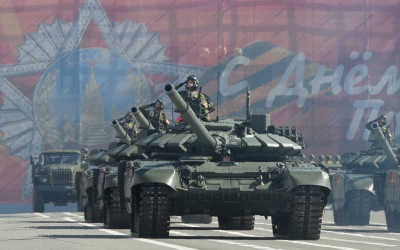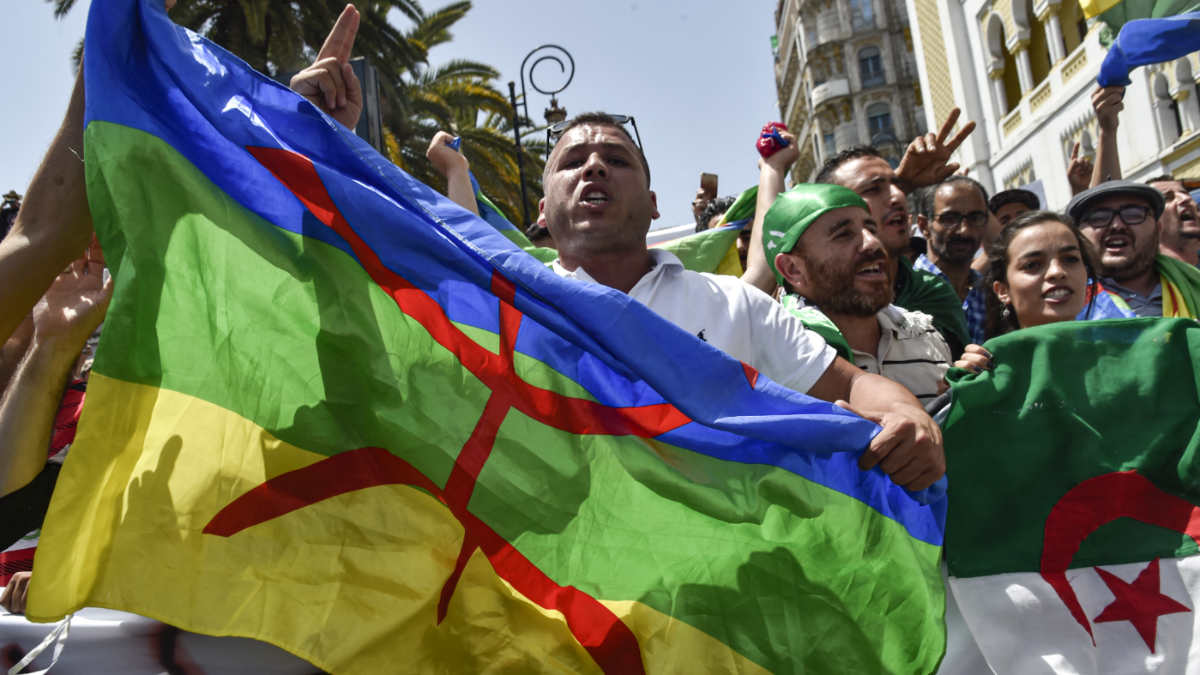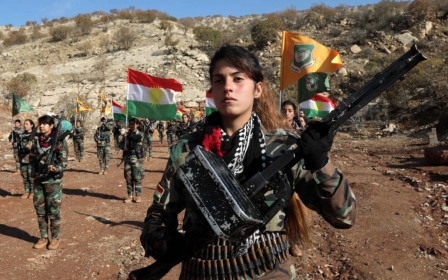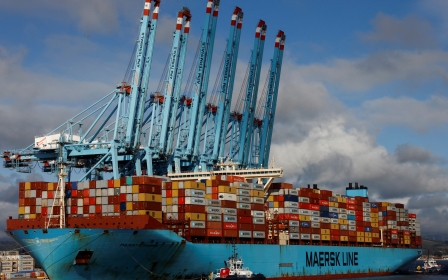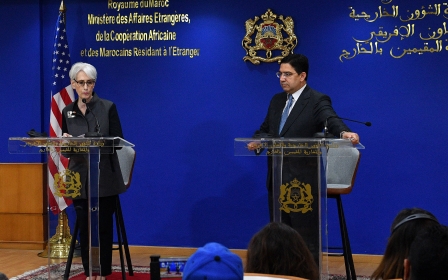Amazigh separatists court US support over Algeria's ties to Putin
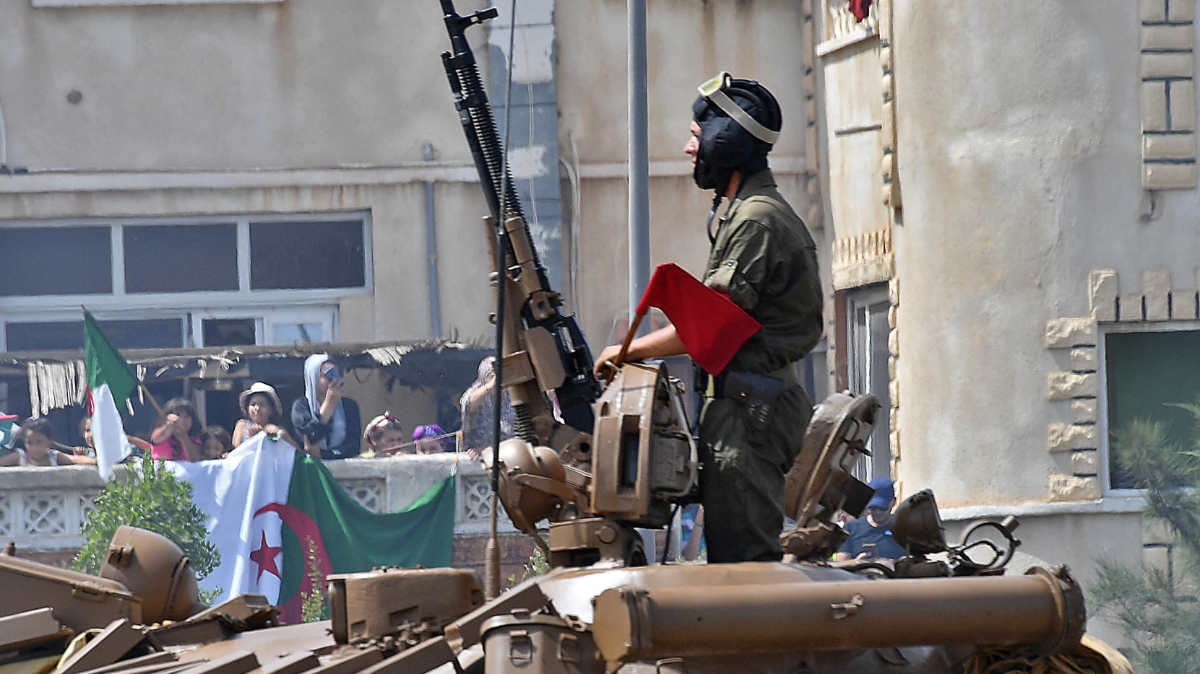
An Amazigh separatist movement in Algeria has enlisted an American lobbyist based in Morocco to help it make a case for support from US officials and lawmakers built on concerns over Algiers' deepening ties to Russia and harsh crackdown on pro-democracy protests.
The Movement for the Autonomy of Kabylia (MAK), whose leadership is based in Paris, calls for independence for the predominantly Amazigh region in Algeria's northern mountains.
According to registration documents filed this week at the US Department of Justice, MAK has recruited Elisabeth Myers, an American lawyer, to represent it in Washington. The contract was signed on 25 June. Myers registered as a lobbyist using an address in Marrakech on the same day.
“Activities will involve promotion of US friendship with Kabylia, along with an understanding of the region, its people, and the impact of the Algerian government's strong-arm tactics over the region,” the documents say.
MAK has already secured meetings with two US lawmakers’ offices. On Thursday, Kabylie independence leader Ferhat Mehenni will meet virtually with senior officials from Democratic Senator Tim Kaine’s office and Democratic Congressman Don Beyer, a source familiar with the matter told Middle East Eye.
New MEE newsletter: Jerusalem Dispatch
Sign up to get the latest insights and analysis on Israel-Palestine, alongside Turkey Unpacked and other MEE newsletters
“MAK will underscore the Algerian government’s cosiness to [President Vladimir] Putin's Russia and ensure congressional staff have a better understanding of the government’s sweeping human rights violations against peaceful protesters and political opponents,” the source told MEE.
The separatist group's bid for influence in Washington could prove to be an indicator of the future direction of Washington’s wider relations with Algeria, a major North African exporter of gas and oil.
Algeria: Energy and arms
After Russia’s invasion of Ukraine, the US made a bid to pull Algeria away from Moscow’s orbit. US Secretary of State Anthony Blinken visited the country in March 2022 as part of a wider trip to the region that included a stop in Morocco. A US spokesperson said Blinken vowed to "broaden and deepen the [US] relationship with Algeria."
But Algiers has proven resistant. In June, Algerian President Abdelmadjid Tebboune met Putin on a visit to Russia designed to strengthen cooperation between the longtime allies.
Western countries have had more success gaining access to Algeria’s massive gas reserves. US energy giants Chevron and Exxon are nearing a deal that would allow them to drill in the country for the first time, Algeria’s energy minister told the Wall Street Journal earlier this month.
But European countries’ rush to find alternatives to Russian gas has also empowered Algeria, which has replaced Russia as the top gas supplier to Italy, and is now shopping around for Italian-made military hardware.
It is also locked in a rumbling dispute with Spain over the status of Western Sahara which has brought non-energy trade between the two countries to a halt.
Morocco and Algeria trade barbs
Algeria is governed by a deeply entrenched political-military establishment colloquially known as “Le Pouvoir,” or “The Power”, which has resisted calls for greater political freedoms and cracked down on pro-democracy protest movements.
In 2019, mass protests known as the Hirak movement forced the country's aging President Abdelaziz Bouteflika, who had led the country since 1999, to step down from office. Bouteflika died in 2021 aged 84.
But the military maintained its grip on power. In 2019, the elite threw their weight behind Tebboune, who was elected president in a vote denounced by protesters.
Since then, the government has launched what rights groups say is an authoritarian crackdown, arresting hundreds of Hirak leaders, activists and journalists.
Algeria designated MAK a terrorist organisation in 2021. Authorities accused the group of working with Morocco and Israel to start deadly forest fires in the Kabylia region. MAK and Morocco denied the allegations.
A 2021 US State Department terrorism report called the terrorism label “more political than security focused,” adding that Algerian authorities refrain from discussing the group or its threats with their US counterparts.
Morocco and Algeria often accuse each other of stirring up unrest across their mutual border.
Algeria hosts and supports the Polisario Front, a rebel movement that established the self-declared Sahrawi Arab Democratic Republic in 1973 in the disputed Western Sahara, which Morocco annexed in 1975 after the end of Spanish colonial rule.
The US unilaterally recognised Moroccan sovereignty over the territory in exchange for Rabat's normalisation of ties with Israel.
Amazighs, who are also sometimes known as Berbers, are an ethnic group scattered across Algeria, Tunisia, Morocco and Libya whose roots in the region predate the Arab conquest of North Africa.
Amazighs are believed to account for about 20 percent of Algeria’s 44 million population. Their culture and language have historically been suppressed by the Algerian government. Amazigh activists played a prominent role in the Hirak movement.
This article is available in French on Middle East Eye French edition.
Middle East Eye delivers independent and unrivalled coverage and analysis of the Middle East, North Africa and beyond. To learn more about republishing this content and the associated fees, please fill out this form. More about MEE can be found here.


